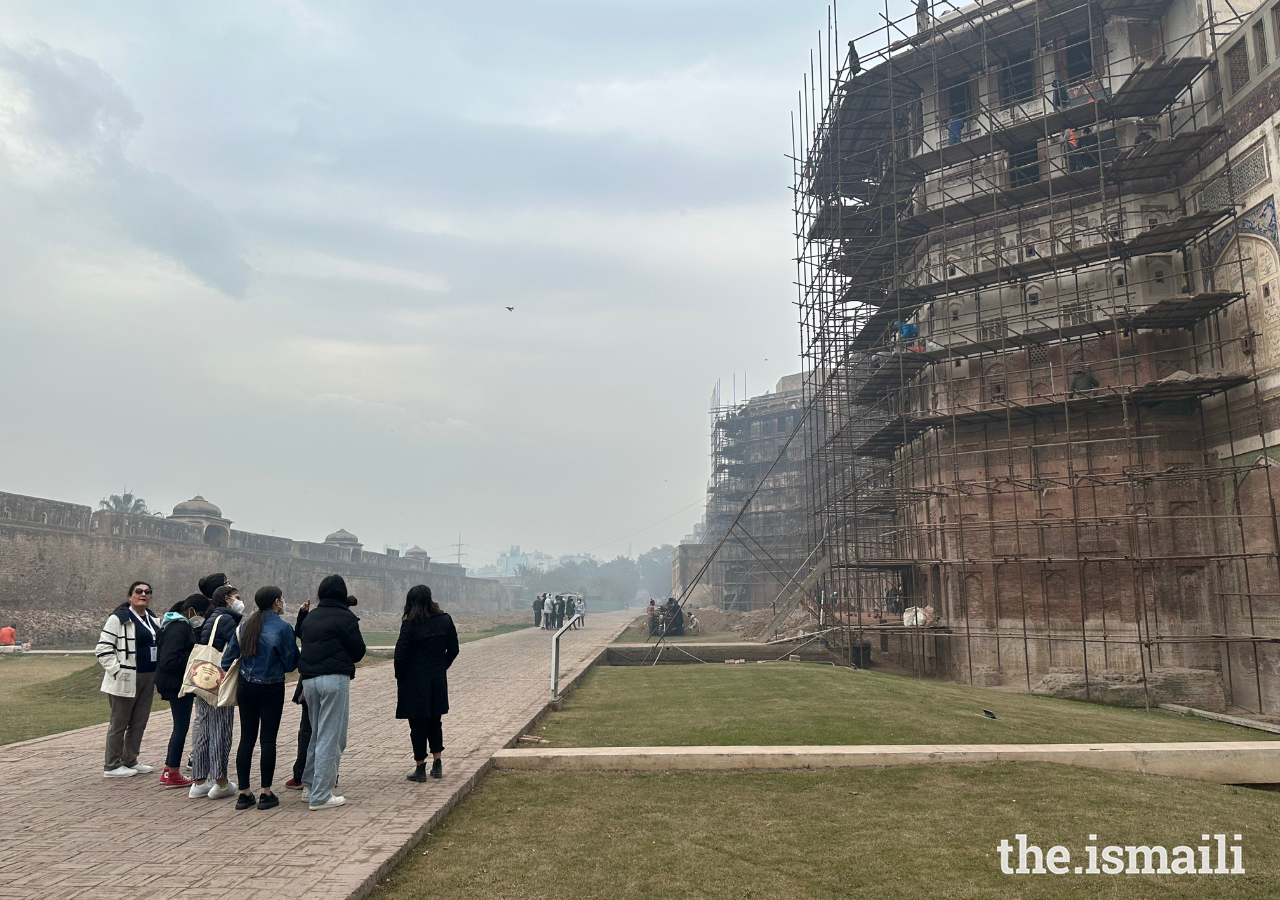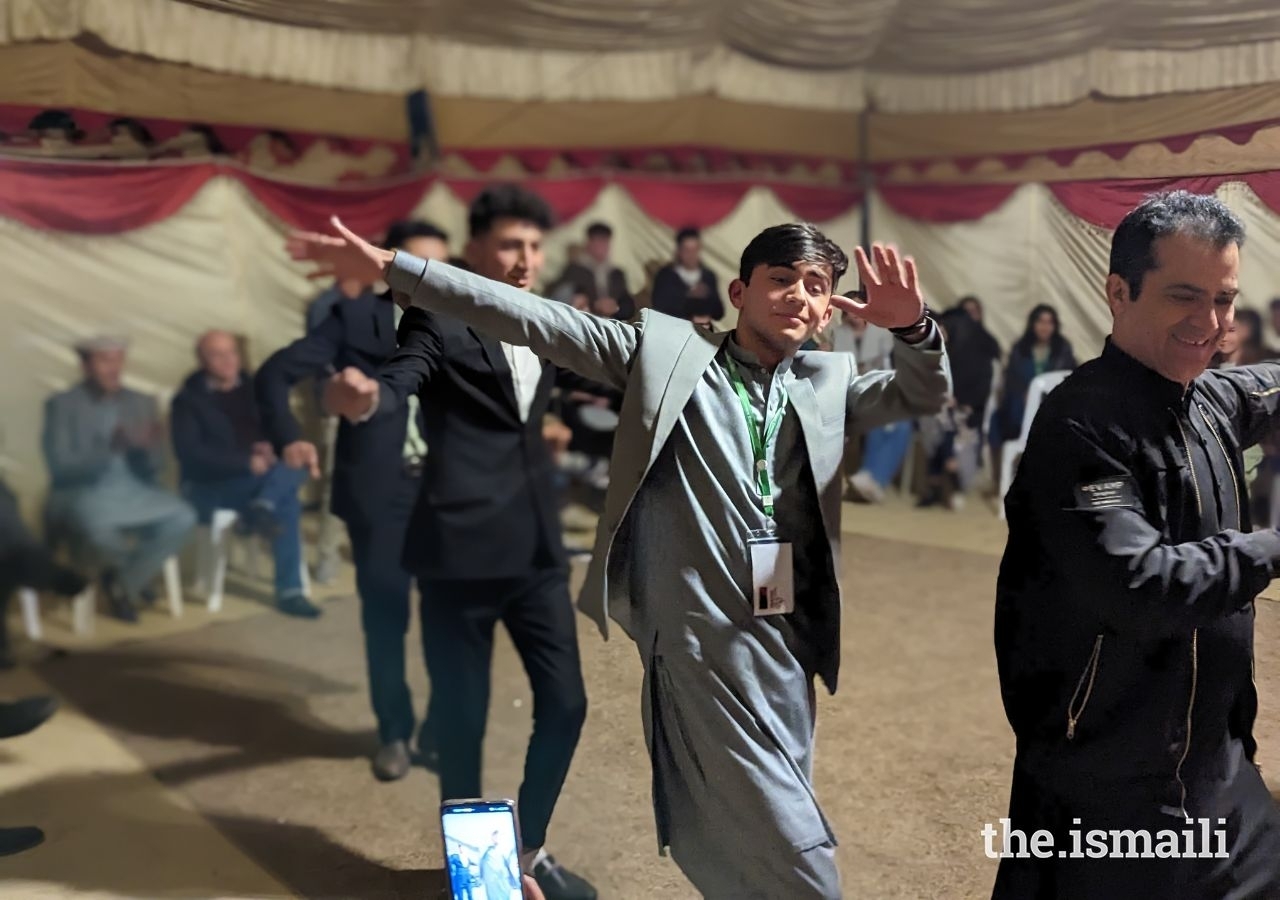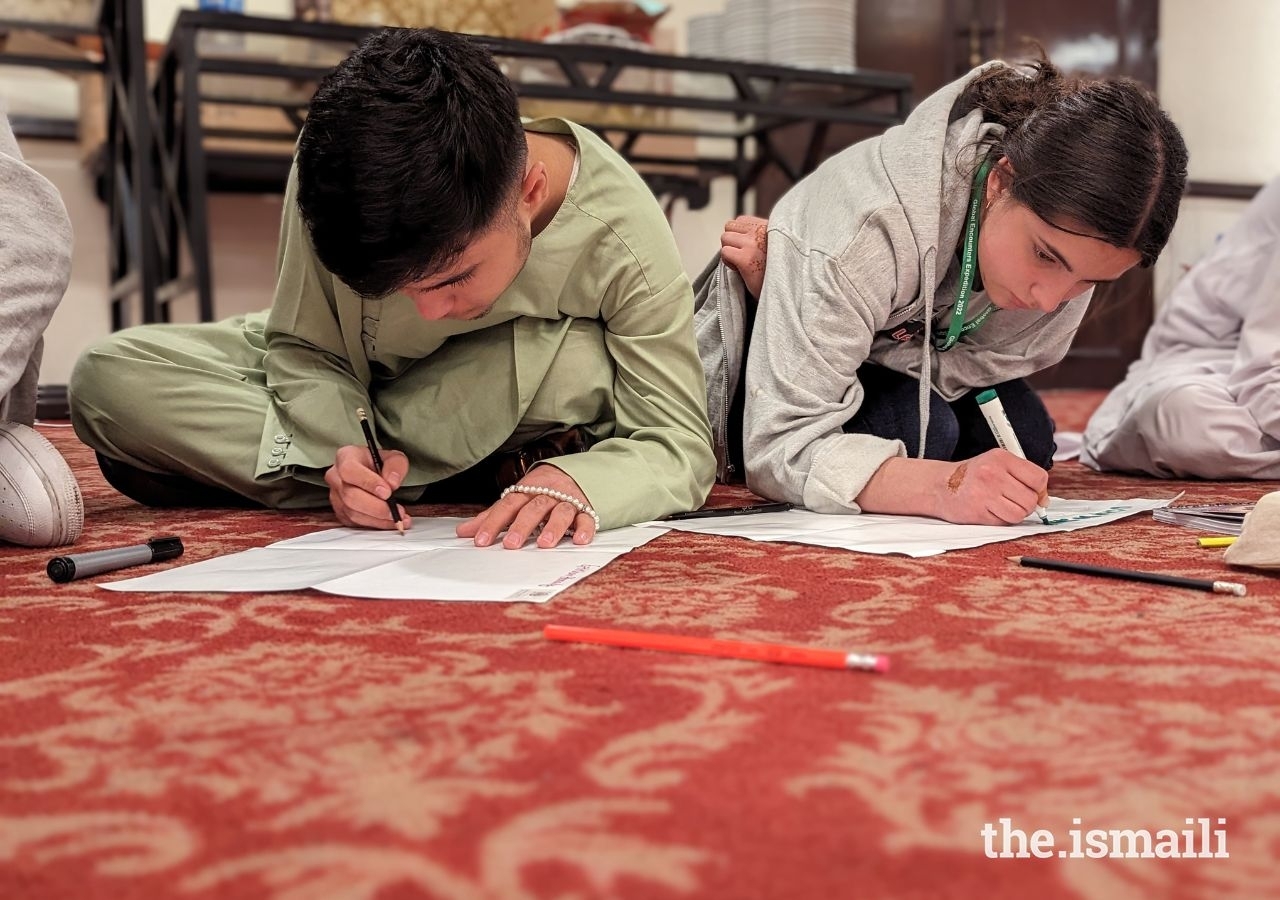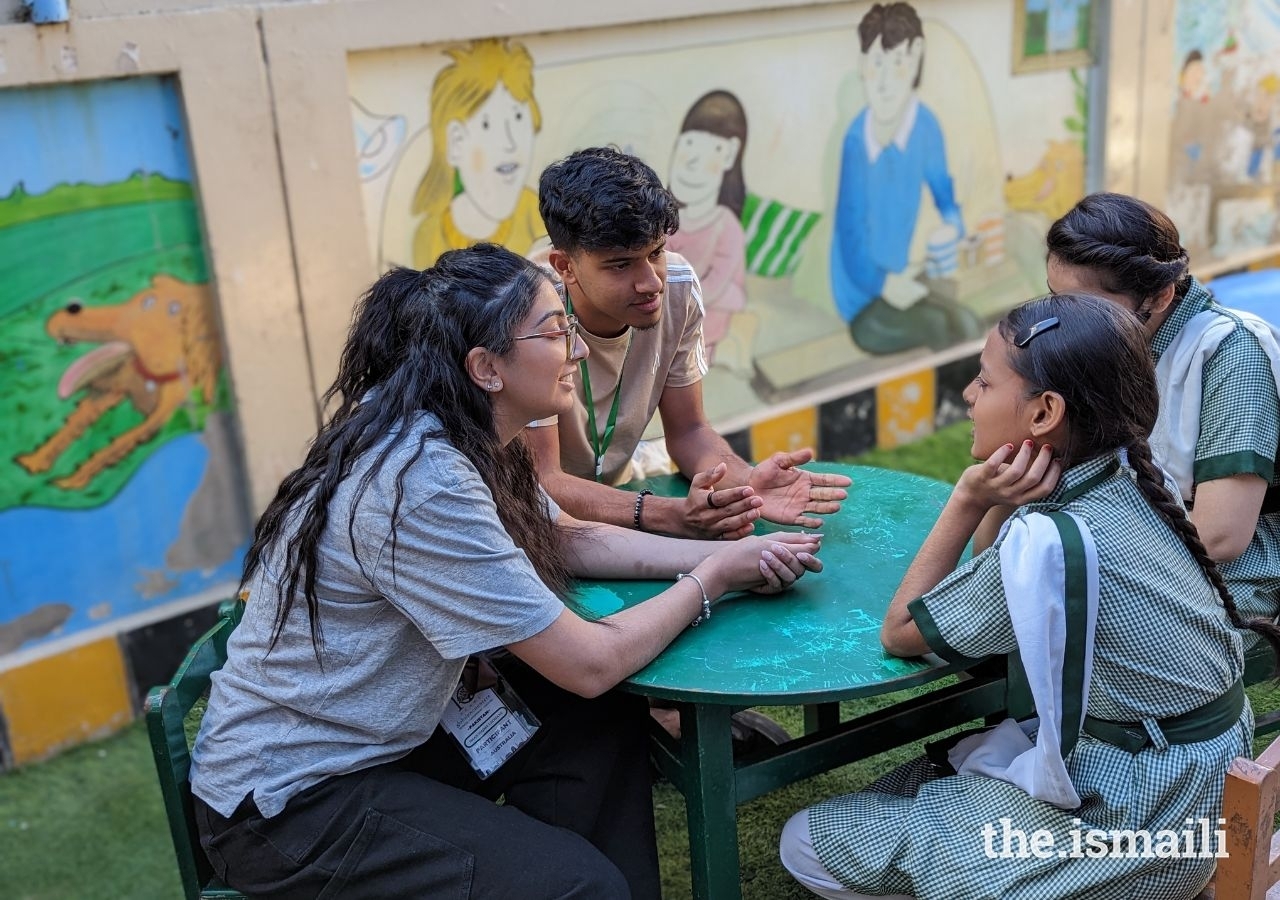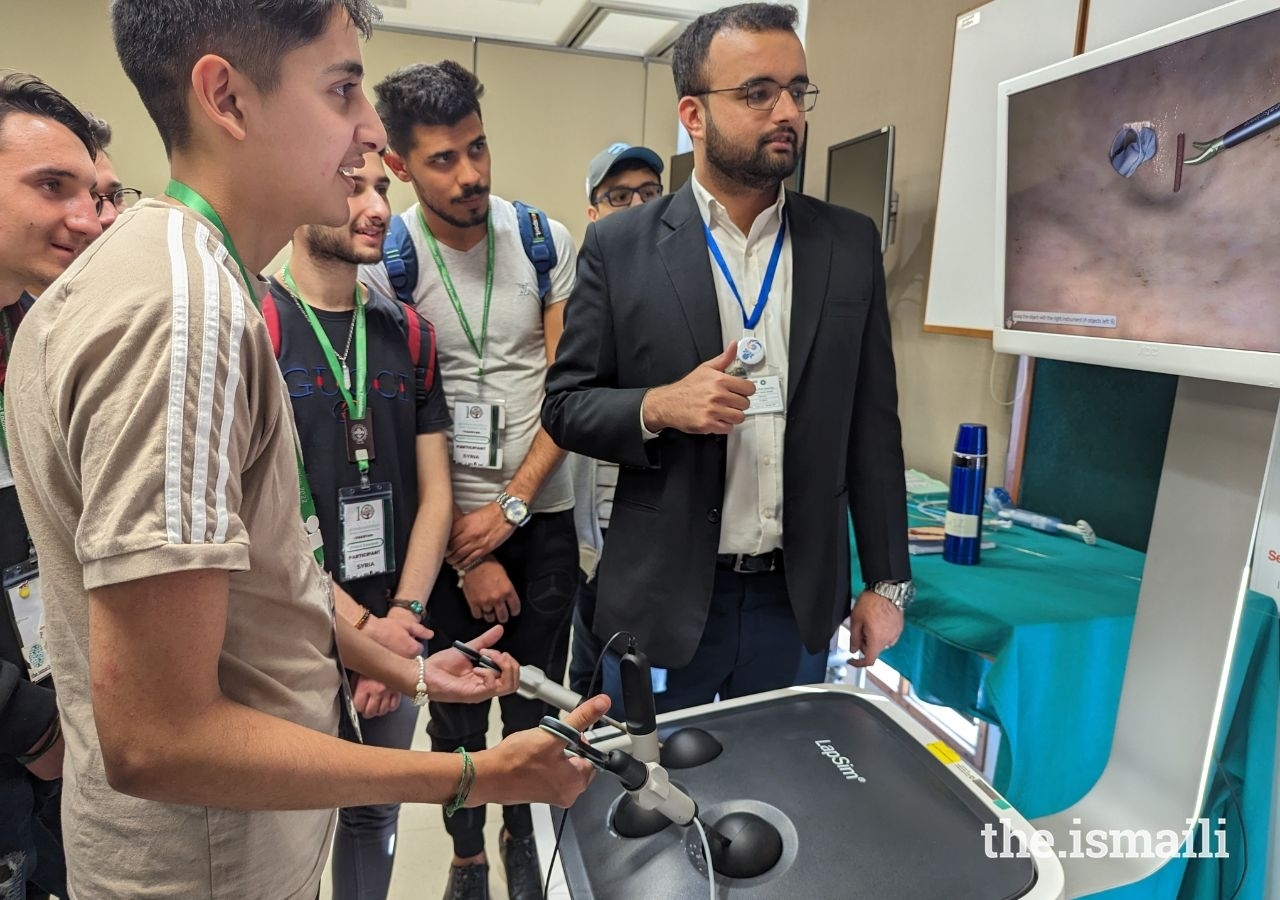The Global Encounters Expedition Camp in Pakistan brought together Ismaili youth from 14 different countries. Throughout the two weeks, participants had the chance to visit AKDN institutions including the Serena Hotel in Islamabad and AKTC restoration efforts at the Wazir Khan Mosque and Shahi Hamam in Lahore. Participants also interacted with local students in the Sultanabad, Aliabad, and Amynabad Jamats in Karachi.
Shahim Hassanly, a participant from Madagascar said of the opportunity: “After experiencing Global Encounters, I have realised how large the youth of our Jamat is and how I am part of this large, intellectual, and ambitious family that will make an impact in the future.”
Global Encounters Camps are transformational programmes that give students the ability to discover who they are, what their strengths are, and how they can make a contribution to the wider world. These international residential programmes for Ismaili Muslim youth are focused on service learning, leadership development, cultural exchange, and global citizenship. Since 2012, over 1,500 participants from 40 countries have made lifelong friendships, contributed over 50,000 volunteer hours to local communities, and transformed how they think about the world.
Global Encounters Camps are hosted at the Aga Khan Academy Mombasa, the Aga Khan Academy Hyderabad, and the Aga Khan University (AKU) campus in Karachi. The most recent cohort of participants for the Pakistan Expedition began its exploration in Islamabad where they were hosted by the Serena Hotel.
During their time in Islamabad, participants enjoyed a global Khushiali celebration in Karimabad Jamatkhana, spoke with families, many of whom were migrants, in Rawalpindi Jamatkhana to engage in oral history sharing, and met with the CEO of Serena Hotels for South and Central Asia, Mr Aziz Boolani.
Participants continued their journey in Lahore, where they visited two AKTC projects, including the Walled City and the Lahore Fort after a five-hour bus journey. Throughout these two engagements, participants were able to climb the scaffolding of the fort and even physically touch the recently renovated architectural structures that AKTC-trained employees are currently working on.
“I learned more about the Islamic architectural civilisation in Pakistan in the past and also the fact that mosques were not only places of worship, but were also for ceremonies and learning,” said Ghalia Saerobiado from Syria.
After a two-hour plane ride to Karachi, participants concluded their journey at AKU, where they resided at the hostels on campus. Faith and ethics-focused sessions took place at the Center for Innovation in Medical Education, while sports were hosted at the renowned Sports and Rehabilitation Center.
A major component of the trip, service learning, also took place in Karachi. Based on a pre-camp survey, participants were placed in one of three sites to conduct service-learning projects and further understand the complexities of the development process. Participants at Sultanabad Colony School developed an English learning curriculum focused on writing English stories about themselves. To develop public speaking skills, students presented their stories in English to classmates and were given notebooks to continue writing after the GE team departed.
“This service site was the best experience. Contributing to children and teachers was amazing. It really helped me to reshape and start to have goals,” said Eftikhar Ahmadi from Afghanistan. “Now I am full of hope.”
The participants assigned to the Aliabad Community Based School engaged in resource-allocation for the ECD sector of the school district, by using reusable handmade instruments and a handbook of activities and games teachers could conduct. Majid Mohamed, a facilitator from the UK commented that the games and activities were “put together interactively with the teachers, taking their ideas and suggestions so everybody had buy-in. It was about learning how to ask the right questions, and effectively map who the stakeholders were.”
Lastly, some participants visited Amynabad, where they worked at the VRC, a vocational school for differently-abled students.
“We created sensory boxes, lessons on fruit and cooking, and played sports,” said Aly Sherali, the Associate Managing Director of the camp.
Throughout their journey, participants were able to engage with the youth at Darkhana Jamatkhana, and meet with the President of the National Council for Pakistan and the Local Council.
Mika, a participant from Tajikistan said, “What I received was a changed mindset, awareness and respect for other cultures and a huge, loving and caring family.”
From buying local clothes and jewellery to engaging with the Chief of Staff and General Counsel at Aga Khan University, participants were exposed to the work of the Imamat first-hand.
The Global Encounters Expedition Camp in Pakistan has left imprints on its participants, who will now carry this journey and its learnings with them to become global citizens who thrive and celebrate diversity and pluralism.
Farangis Taygunshoeva from Tajikistan, the Programme Director, said she believes GE camps are about transformation.
“We are involved in this critical reshaping period of each individual. Mawlana Hazar Imam talks about diversity, pluralism, one Jamat, and global citizenship. At GE Camps, we are not only talking about these concepts, but experiencing them and witnessing the power and beauty in each activity and interaction,” Farangis said. “It creates a platform of brotherhood and sisterhood within our youth and keeps them connected as one Jamat. Also, during this programme, each individual grows so much because of the great diversity and different styles of working and reflection GE Camps invites. Globally we should bring more communities together, and learn about the Jamat’s work, life stories, challenges and successes.”
Source: https://the.ismaili/global/news/institutional-news/global-encounters-cam...

